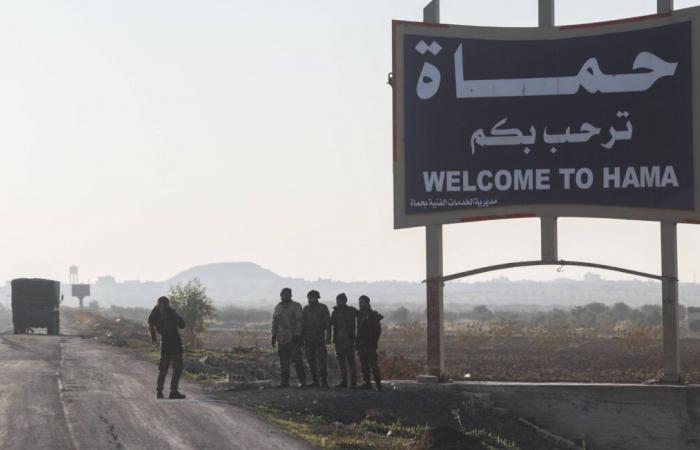It is the second largest city in the country. Aleppo was taken by Syrian rebels and Hayat Tahrir al-Sham (HTS) jihadists last Saturday. They are now advancing towards the town of Hama, eating away at a large territory. A decisive victory in the course of the war in Syria. On the side of Damascus, the defeat is crushing and particularly worrying in view of the regional and international situation. Its biggest allies, Russia and Iran, are looking elsewhere. And without their support, the Syrian army is in great difficulty on the ground.
Since October 7, 2023, the cards have been reshuffled in the Middle East. “Like September 11 or the Arab Spring”, the large-scale terrorist attack perpetrated by Hamas in Israel constituted a turning point in the region which has undergone a “reconfiguration, a recomposition”, estimates Adel Bakawan, associate researcher at Turkey/Middle East program of the French Institute of International Relations (Ifri). “The regional context played a fundamental role in the current situation in Syria,” says the man who is also director of the French Center for Research on Iraq (CFRI). According to the researcher, the two groups, HTS and the rebels of the Free Syrian Army, have thus taken advantage of the turmoil that has shaken the region for a little over a year.
Iranians, targets of Israel
Indeed, since October 8, 2023, Israel has launched an offensive on the Gaza Strip, but also on the Iranian allies of the Damascus regime. Strikes targeted the military bases of the Revolutionary Guards in Syria, including their diplomatic premises. On April 1, 2024, Israel bombed an Iranian consulate building in Damascus, killing 16 people, including the commander-in-chief of the Islamic Revolutionary Guard Corps' Quds Force.
The other actor close to Iran which worked for the survival of Bashar al-Assad's regime is Hezbollah. “The most powerful actor involved in Syria, the armed group has been structurally on the ground for several months,” underlines Adel Bakawan who adds that “all of the leading executives have been decimated”. According to experts, cited by Radio France, between 60% and 80% of its arsenal of medium and long range missiles has been destroyed. Result: “Hezbollah withdrew from the Syrian terrain and is now fighting for its survival in Lebanon,” supports the researcher.
Finally, the Iranian militias, also engaged in support of the Syrian army, “are no longer able to go to Syria even if in the speech, they always put forward the defense of the axis of resistance”, continues our expert.
Russia engaged in Ukraine and the Sahel
The other juggernaut that allowed Bashar al-Assad to quell the rebellion and remain at the head of a Syria in ruins and fragmented is Russia. But for the Kremlin too, the priority is on other grounds. Moscow is seeking to establish itself in the Sahel as an ally of the putschist regimes which have driven out French forces. But above all, it declared war on February 24, 2022 in kyiv and “had to withdraw a lot of men and equipment to Ukraine”, adds Pieter Van Ostaeyen, historian, analyst of the Syrian conflict and author of the book. From the Crusades to the Caliphate (Pelckmans).
Indeed, Vladimir Putin is staying his course in Ukraine and trying to maximize gains on the ground before Donald Trump arrives at the White House “so as not to destabilize the good relations he maintains with the elected American president” , analyzes Adel Bakawan. If Moscow has launched some air raids in the province of Idleb and in the neighboring province of Aleppo to come to the aid of its Syrian ally, in response to rebel advances, Russia is no longer committing the same capabilities. Those of 2014 and 2015, when its air force reduced the region to ashes.
“A fall of the regime [syrien] is not excluded »
Bashar al-Assad insisted on Sunday on the importance of “support from allies” to “deal with terrorist attacks”. And on the Iran and Russia side, in the speeches, there is no question of letting go. Russian President Vladimir Putin and his Iranian counterpart Massoud Pezeshkian affirmed their “unconditional” support. China also got involved, promising to support the Syrian regime in “its efforts to preserve stability”.
In reality, however, not much is happening, observes Adel Bakawan. Experts doubt that the same level of commitment as in the past can be put in place alongside Damascus soon. However, “without the support of Iran and Russia, a fall of the regime is not excluded,” says the researcher, who nevertheless remains cautious because “the regional situation is extremely fluid.” The president “Assad probably does not have the necessary resources to retake Aleppo,” Tammy Palacios of the New Lines institute confirmed to AFP.
Our file on the situation in the Middle East
Another state, which has remained discreet lately, is rubbing its hands. If it rejects any interference in the latest rebel advances in Syria, Turkey could benefit from a very weakened Bashar al-Assad. The latter could thus be forced to sit at the negotiating table, in particular to discuss northern Syria where Recep Tayyip Erdogan's Kurdish enemies are based. The Turkish president thus hoped on Monday “the end of the instability in Syria which has been going on for thirteen years” thanks to a solution “in accordance with the demands of the Syrians”.






